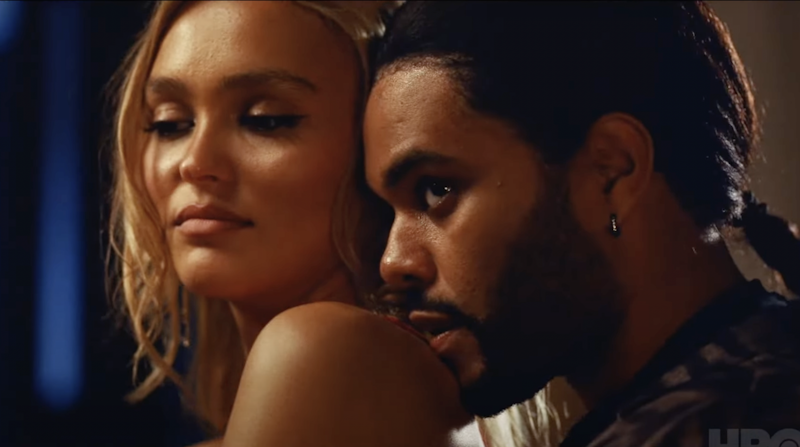Shortly after Euphoria’s second season finale aired last year, HBO said that the show wouldn’t return until 2024. That was a year and a half ago, and with no end in sight for the WGA strike, Euphoria’s projected third season premiere has been pushed to 2025. For a show that started in 2019, and is still ostensibly about teenagers, this is an absurd amount of time in between seasons. However baroque the last eight episodes of Euphoria were, the show never transcended its soap opera essence—it was just another show. Shot on film, with a considered and unique aesthetic uncommon to most television programming, it’s a high school show about kids in recovery, in love, in trouble, in melodrama.
Like Mike White, Mark Frost, and David Lynch, Sam Levinson has written and directed every episode of Euphoria. He’s a pulp writer, and not a very good one—in another generation, he’d be writing porno paperbacks for spinner racks. Euphoria’s cinematography was a lot more ambitious last year, and despite fractious reports of chaotic sets, endless hours, and constant changes, the show only got better as it became more visually focused. High school movies and shows can only be so beautiful, because their setting will always be ugly. Besides that, Levinson is interested in sleazy material, and even he can only go so far with high school kids on HBO.
The Idol is his new show, arriving 14 months after original director Amy Seimetz left the production “80 percent finished.” According to a Rolling Stone report from March, HBO scrapped almost everything from that first production (budgeted around $54-74 million) and brought Levinson in to reshoot and rewrite most of the show. That Rolling Stone article leads with intimations of more delays (“HBO can still only offer a vague ‘later this year.’”)
But the series premiered at Cannes in May, and its second episode has aired three months after yet another exclusive from an “out of control” Levinson set. When Seimetz left the show last April, the only comments from anyone on the production were from star Abel Tesfaye, who “felt the show was heading too much into a ‘female perspective.’” Someone on the Levinson helmed reshoot said, “I would never work for him ever again… I don’t think I’ll watch Euphoria again after working for him and knowing how he treats his crew.” The piece reminded me of all of those Euphoria reports, with crew members protesting impossible hours and ridiculous setup demands on a high budget show that shot on 35mm film.
I wonder what Jane Adams thinks of all this, what her experience was, if she was one of the few cast members retained from Seimetz’s version. She’s astonishing in the show, a brass knuckles pop star manager who taunts her client with memories of mommy, dead from cancer, and a world tour cancelled and refunded due to a breakdown. Lily-Rose Depp is Jocelyn, a Britney Spears for the 2020s, a young woman exhausted with her inane commercial music and eager to experiment. She’s good, Tesfaye is terrible, but Adams—my lord! “What’s her problem? I remember getting fucked in the ass in the Capitol Records building stairwell fondly.” Eli Roth is also excellent as one of Jocelyn’s “people,” another pushy agent named Andrew Finkelstein.
The first half of the first episode is the only reason I’m writing this: dolly out from a close-up of Jocelyn cycling through a variety of facial expressions during a photoshoot into a wide shot of the whole scene, her “team,” the photographer, and the intimacy coordinator. Cue title card. Her “people” look in on the shoot, asking themselves whether or not they’re “exploiting mental illness.” In a slow zoom, Adams snaps back, “Of course we are. Mental illness is sexy.” She explains that to someone in Sioux City, Iowa, someone as fragile as gorgeous and “crazy” as Jocelyn is the ultimate fantasy, and someone they’d never meet otherwise. The intimacy coordinator gets in the way, and Jocelyn orders one of her main men to lock him in the bathroom. Even more “people” arrive to go into damage control after someone leaks a photo of Jocelyn’s face covered in cum. They all dance around telling her, and when they finally do, she couldn’t care less.
“This was such a strong example of just how far [Levinson] can really push HBO and they will continue to cover [him] because he brings in money… He’s able to walk away unscathed and everybody still wants to work with him… People ignore the red flags and follow him regardless.” No matter how fraught the shoot was, and no matter how much of a nightmare he might be to work with, I can’t say Levinson’s a bad director. Someone else quoted in the Rolling Stone article said Levinson’s version went from “satirizing something to the exact thing it was satirizing”—namely, the slaughterhouse that is the American entertainment industry. With six episodes left, The Idol could drift and lose the bite of its first episode (the second episode wasn’t nearly as good), but to me, this looks like the best of both worlds for HBO: another proudly sleazy Sam Levinson production, with a legitimate critique of modern Hollywood. If you like high budget pulp—Showgirls, Mandingo—then The Idol is the best thing on television right now.
—Follow Nicky Smith on Twitter: @nickyotissmith

